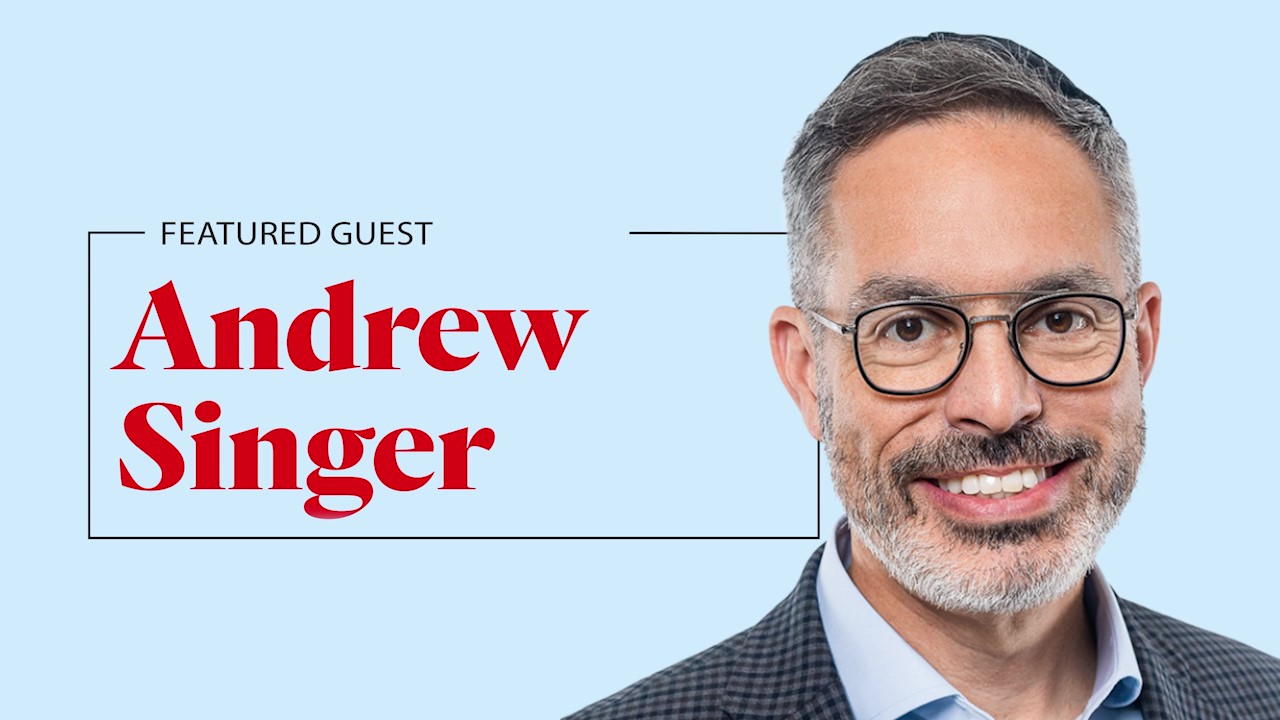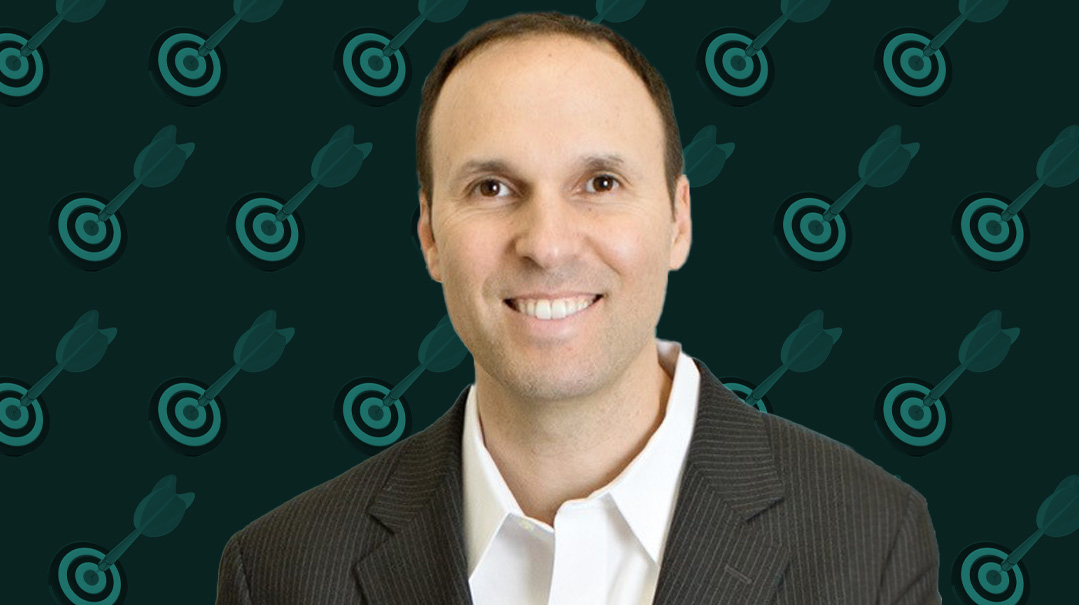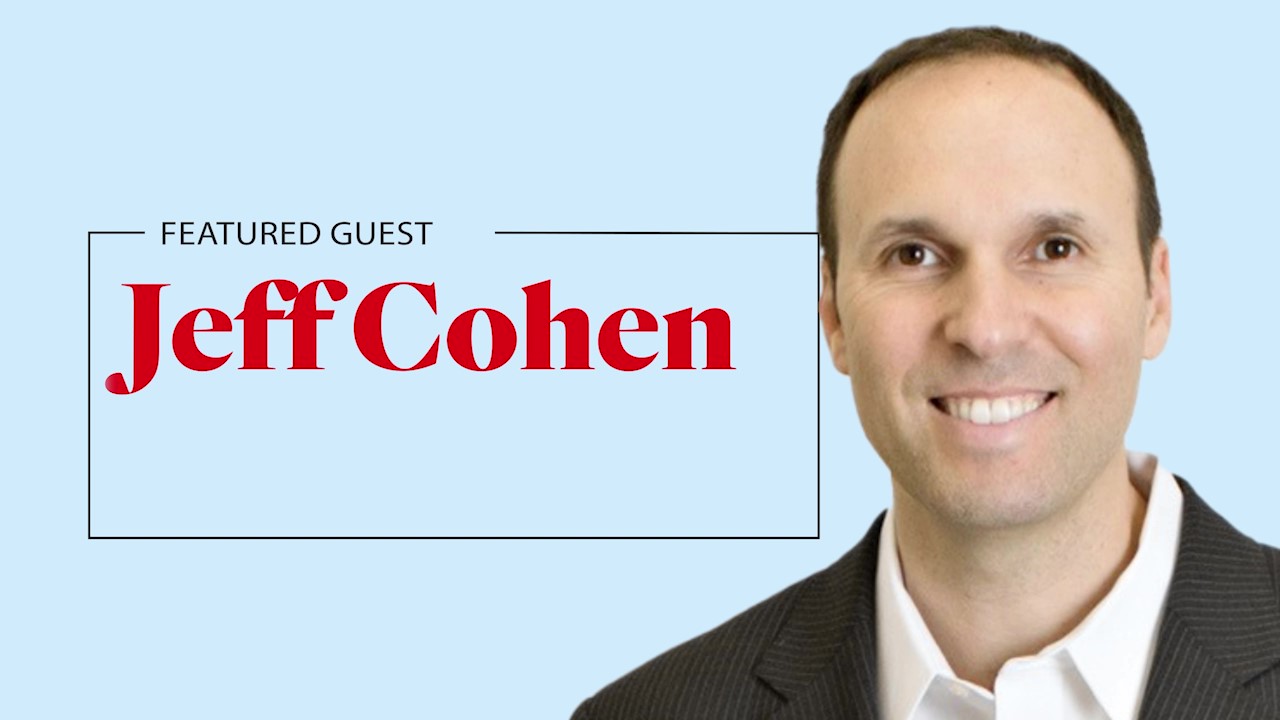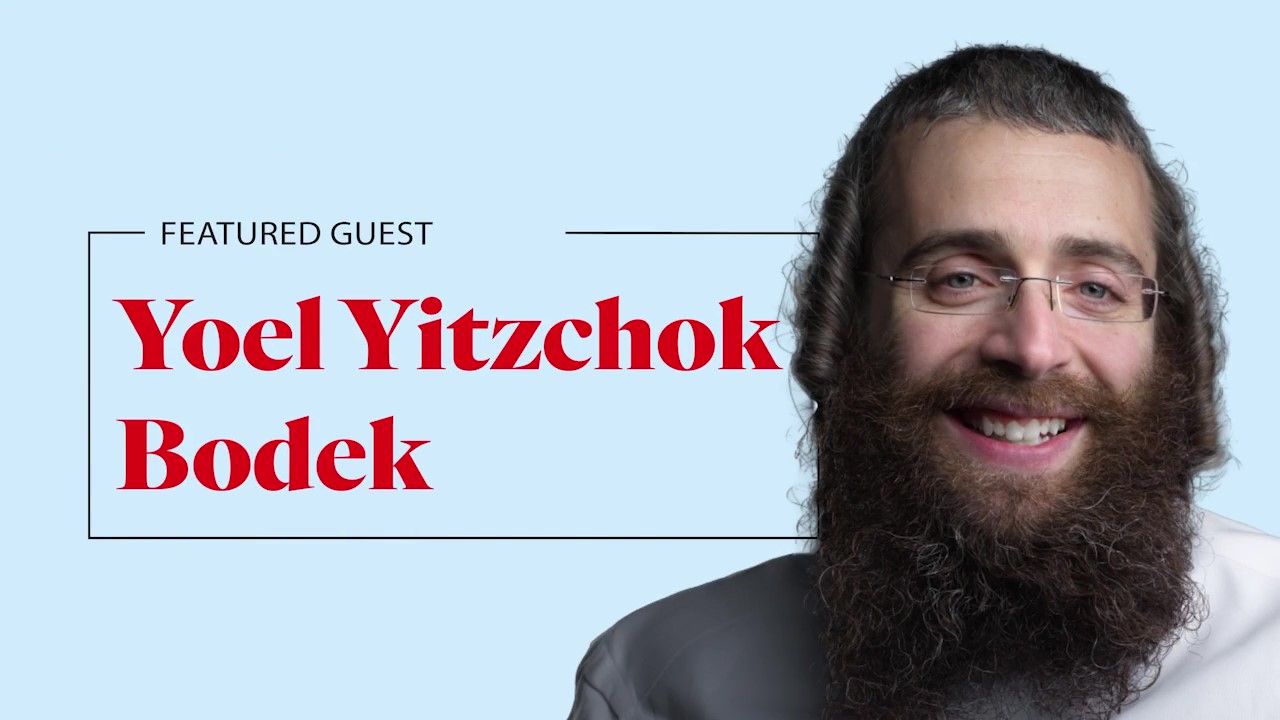Selling Points with Master Salesman Andrew Singer
| September 5, 2023Some of his tried-and-true sales tips that can help you grow your business and income

A successful salesperson may have lots to say, but his success comes from knowing when to keep quiet and listen. Andrew Singer, VP at Constellation Energy — who was described by the editor at Fast Company as “a rare kind of leader and a truly engaging speaker,” and who enthralled Howard Putnam, the former CEO of Southwest Airlines with his speeches — has mastered that art. Here he shares with Kosher Money and Mishpacha some of his tried-and-true sales tips that can help you grow your business and income.
Andrew’s path to sales was a meandering one. He started as a buyer for Lord and Taylor back in 1989, then followed his mother’s advice and went to law school. After he spent a few years practicing law, the firm he was working at showed signs of folding, and Andrew began looking for a new job. When he heard about soundproof windows and realized no one in the area was selling them, he decided to grab the opportunity. He started a company, and thanks to his sales skills, it grew quickly.
But while the company was successful, Andrew found the entrepreneurial model wasn’t for him. Then he got a piece of advice he says was the best he’s ever received: “Just say no.” He closed the company and went back to grad school, before ultimately taking a position working in sales full time, and he hasn’t looked back.
“When something isn’t working out,” he says, “often the solution is not to try and fix it. It’s to walk away.”
What does a salesman need to know before a call?
You know ahead of time what you’d like to get out of the conversation. You have a blank canvas in front of you, and you know what you want it to look like at the end. Your job is to put that picture together by directing the brushstrokes and filling in the gaps of the conversation.
And you need to know how to listen. Really! The listening piece — being able to hold your tongue and let clients lead the way — is super important, and it doesn’t only apply to sales. If you can put your ego aside, if you recognize that you gain more by listening, then you’re already in a position of power.
People aren’t used to being listened to. The second you can do that, you’re already ahead. You become their friend and gain their trust.
It’s tempting in conversation to think of what you’re going to say next, but it’s crucial to realize that as soon as you start formulating your reply, all you have in your head is what you’re going to say next. As a salesperson, you need to recognize that interrupting is akin to shutting your ears off. You’ve decided that what you’re about to say is more important than the last five seconds of what the client is saying.
That’s a big mistake. As we discussed in the episode, you always want to hear what your potential customer has to say more than you want to hear your own thoughts. The information they’re giving you is 100 times more important than what you’re going to give them.
Can you tell us more about being an active listener?
You need to stay quiet when someone else is talking, without interjecting, but you also need to show through your facial expression that you’re taking in what he’s saying.
Ask follow-up questions that allow the speaker to expand on what he’s saying. Taking notes is another old-school trick that lets the speaker know you’re listening intently. And it’s often a good idea to even repeat a bit of what the speaker has said, to make sure you understand.
We tend to assume other people are on the same exact wavelength we are, and that when we ask a question, their thoughts will be the same as ours. Establishing a baseline is super critical to ensure you’re both on the same page.
When you ask a question and someone responds that he doesn’t know the answer, you have the chance to clarify that he understood the question the way you intended it — or to bring up any other underlying thoughts and address those, too.
Can you describe how a salesman might open a conversation?
You want to spend exactly 18 minutes of every hour speaking and exactly 42 minutes is listening. If you speak for longer than 18 minutes, you’re probably not going to get the sale. To get that balance, make sure you’re asking questions and not only talking. The goal is to get the prospect to schmooze.
“Hey, I noticed your building is on a fairly busy street. Does the noise bother your clients when they’re here?”
“That’s funny you should say that. Actually, it does.”
“Well, I noticed that the glass is from 1957, according to the date on the bottom. You know that you’re probably good for a rebate with the utility company right now to update your glass?”
“No, I had no idea!”
And suddenly, you’re in conversation.
When you ask follow-up questions, ask about something you really want to know. You want people to feel like what’s taking place is a natural conversation, even though it’s within the realm of a sales call. You’re creating a conversation where none existed before — and that’s real.
What do you recommend to a salesman who finds his prospects aren’t biting?
One of the best lessons in sales is to get your prospect to say no. If they say no, you have a very good chance of actually making a sale. And it’s not a gimmick — you’re recognizing they’re really not into it.
Back in the ’70s, David Sandler, who runs one of the premier sales coach systems, used to call this technique “the pushback.”
You’re sitting and talking to somebody and you say, “Well, Mr. Customer, I have this for you.”
Their response is, “I don’t think so, I don’t know, I’m not sure….”
You look at them and you suddenly realize it’s not going to happen, so you do the pushback.
“I so appreciate your time, but I have five other appointments, so I have to go.” It’s almost desperation, and it works every single time. You’re saying it straight out, “I know you’re not going to buy from me today.” And when you get ready to leave, they usually ask you to stay.
Is there an ideal time to cold-call a business?
Yes, first thing in the morning. Before opening hours, the owner is usually there, but without a gatekeeper — no secretary. If you have the right extension, you can often get straight through.
Any advice for business owners looking to find good salespeople?
A good salesperson should immediately be able to sell you on the product of the moment — which is himself. If you’re bored within a couple of seconds of the interview, the prospect is going to be bored. If you’re not believing anything he’s saying, the prospect’s not going to believe him. But if he’s engaging and he’s made you want to speak to him for a half hour, there’s a chance he’ll be a good hire.
I was at Radio City Music Hall listening to Jack Welch, and one of the questions was, “What was the biggest challenge you ever had in your professional career?”
His response was “Hiring,” and it left everyone really surprised. He went on to explain that 50 percent of the time, you just won’t get it right. There are great workers who had lousy interviews, and worse, the great interviewees who make lousy workers. You hire them and they’re just horrible. On the other hand, some people give bad interviews, you don’t hire them, and then you read about them a year later and wish you hadn’t let them go.
What do you think about hiring someone with no sales experience?
The legend of Zappos is that on the first day of the job, they offer you $2,000 to walk away. If you take the money, then you weren’t meant to be there. And if you stay, it’s probably because you like what you see going on.
Why is the two grand worth it? Because they’re don’t want to invest in this person for six months to a year only to find out they’re not right. Imagine how much time and effort they will have wasted by then, both on the new person’s salary and the time supervisors spent training them.
It’s okay to hire someone who is new, but you want to do as much upfront work as possible to make sure the hire won’t be a waste of your time.
You mentioned the interview process. What are your best tips for people — whether for a sales job or any other field?
Working with young people on interview skills is one of my greatest passions. About 17 years ago, a rabbi in the community asked me, “You’re in sales, right? Do you interview a lot of people?”
I told him that I did, so he mentioned the name of someone in the community who had an interview coming up and asked if I could help him prepare. Since then, it’s turned into helping people with job interviews, grad school interviews, med school interviews, and other things. It’s extremely rewarding.
I always tell people that an interview has one goal. You want the person to like you.
People will argue, “Well, I want to let them know what’s on my résumé. I want to tell them why I’m good for the job.” But unless you have an insane level of talent that no one else can match, no one is going to hire you if they don’t like you.
When you go to an interview, you’re basically standing on a plateau — apart — and your goal is to walk out of the room together with the person interviewing you. Figuratively, of course. You want them to put their arms around your shoulders and show you off to the rest of the team, vouching for them to hire you.
What are some of the key mistakes a lot of people make during an interview?
I think the two biggest mistakes I see are throwing up information and the gorilla in the room.
I’ll start with throwing up. The interviewer will say something like “Nice to meet you,” then you’ll respond, and next thing you know you’re giving a full speech about why you’re there. Candidates often feel they need to get out their entire résumé and all their selling points in a very short period — whether due to nerves or lack of awareness. You’re doing a lot of talking with no listening. There’s no human interaction.
The gorilla is more subtle. It’s when you have something you don’t want to talk about, like the fact that you quit your previous job, and you’re convinced you’ll need to talk about it — but you don’t want to — so it comes up in the wrong place.
“How are you?”
“Good, and I quit my last job but I don’t want to talk about that.”
The interviewer is left thinking What just happened?
It’s like a kid who’s thinking, I hope they don’t ask about my math grades, on a loop. Then when they ask how he is, he says, “Well, I was born in New York, and I got a C in calculus.”
You’re so disjointed that you’re not listening and then you throw out the answer when it’s totally not in place. It creates discord, which you never want in an interview.
Any more tips on successfully navigating interviews?
These three things are going to give you an edge on the interview — before you even start.
Be respectful: If you picture the person interviewing you as the most respected person in your world, you will never do anything wrong socially. When you walk in the room, don’t sit down first. Don’t walk in ahead of somebody. If you see a table, don’t pick a chair until somebody else does. Many young people are not purposely disrespectful, but they don’t have the sensitivity to respect that the person interviewing them expects. If you’re respectful, there’s a higher chance they’ll like you.
Listen: Remember the advice you got before your first date. Listen. Let the other person speak.
Be in the zone: If you’re a coffee person, have coffee. If you’re a breakfast person, make sure you eat breakfast. You need to be your best self for the entire interview.
Someone once told me that a lot of his friends weren’t getting into medical schools and he was convinced it’s because they were failing at the interview stage. He started sending me people who did exceptionally well in the sciences and on their MCATs — but it was very clear that they didn’t know how to have a conversation with someone.
I explained that it doesn’t matter how smart you are. There’s probably someone else with a similar level of knowledge, and if they like the other person more, they’re going to accept that person first.
I was helping some people with their interviews for law jobs. One of them had not been successful after nine or ten interviews. I asked him to tell me the questions they asked in his last interview. He told me, then he shared his answer.
“She asked what I liked in school, so I told her, ‘yada yada,’ ” — referring to the answer he’d given.
Afterward, I asked him, “What does that woman have that you want?”
He was confused for a minute, so I explained: a job. She’s a partner at a big law firm and possibly has a job for you. You think she doesn’t know that you’re yada-yadaing in your head as you speak to her?
And I told him, “You’re repulsive.”
“Excuse me?”
“You’re a wonderful person, but you’re repelling all possible connections.”
The next interview, he was genuine and didn’t yada-yada — and he got the job.
It’s almost impossible to avoid all forms of rejection, whether getting turned down for a job or not making the sale. How can people handle that?
Rejection is a part of sales, period. What you need to understand is your hit rate. Sales is a science. You have to fill a funnel and you have to fill a pipeline. And I know those are all words that you’ll see in a sales book, but it’s the truth. Because when you fill a pipeline with 100 leads or 100 prospects, you’re hoping that at the bottom, you’ll have a percentage remaining. That’s your business. If you’re fixated on trying to get only that specific sale, you’re going to get rejected and you’re going to go home upset.
When I started in sales, a good friend of mine who was selling insurance told me the following: You need to make a rule for yourself. What’s a successful day? What allows you to basically close your computer at the end of the day? And what he told me was, “A day is successful if you either made two appointments or closed a deal.” You can’t only calculate based on sales closed.
The pause
There are effective public speaking tools that work in sales, too, like leaving a pause to allow something to sink in, or repeating a phrase to make a point. The silence is especially important. Envision the question leaving your mouth and then sailing across the room. It needs time to sink in and settle before people fully absorb it.
Good sales is about being authentic and sincere at all moments. If somebody sniffs insincerity, you’ve killed everything. You’re dead in the water and you’re done.
Does success in sales come from personality or skill? Can it be learned?
Everyone in sales should take training, but it doesn’t mean that everyone who takes some training will do well in sales. If you explore the field and look into some of the free resources, you’ll get a sense of whether it’s for you. If you’re shy or don’t like talking to people, it isn’t.
I’ve found that most successful salespeople have some of the following traits:
1) They have above-average intelligence.
2) They have a strong EQ or empathy level and can sense what’s going on in a room. People with a sixth sense do quite well in sales, because they understand what’s going on before they hear it. They have those little treasures of insight and save them for the right part of the conversation.
3) Lastly, they’re determined; you need tenacity to persevere despite repeated rejection.
Zooming on Zoom Calls
People tend to make mistakes on Zoom calls, not taking them as seriously as they would an in-person meeting. Here’s my checklist for a Zoom sales call:
Are you in your sweatpants or dressed for work?
What’s happening in the background? Is it professional, or can people see the toys in your living room?
Are you looking at the camera? Or are your eyes moving around too much because you’re reading other things on the screen?
Can the prospect see you properly, or is the camera only on aiming at the top of your head?
Remember: Keeping attention is harder when you’re on a screen. When possible, use some media like a slide deck.
Try to keep Zoom meetings shorter than in-person ones, with a 30-minute cap.
No one is ever going to buy something from someone they don’t like.
(Originally featured in Mishpacha, Issue 977)
Oops! We could not locate your form.







